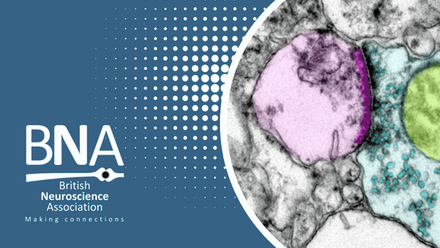Join the BNA Dementia Masterclass for an in-depth exploration of the latest advancements in dementia research. This session brings together a renowned panel of leading experts to share cutting-edge insights and diverse perspectives. Engage in interactive discussion with speakers at the forefront of dementia research.
Venue:
Henry Wellcome Auditorium, Wellcome Collection, 183 Euston Road London NW1 2BE.
The Wellcome Collection is right in the centre of London and is very easy to get to. A few minutes’ walk from Euston and King’s Cross mainline stations, it's also close to Euston Square and Warren Street tube stations and is on plenty of bus routes. Explore how to get there.
Environmental sustainability:
The British Neuroscience Association (BNA) is highly aware of the environmental impact of holding meetings and have therefore taken the following measures to increase the sustainability of this event. If you have further ideas or comments, please do contact the BNA at [email protected].
- The venue is easily accessible via a plethora of public transport options
- All speakers and delegates are encouraged to travel via public transport
- No meat or fish will be served at the event, unless specially requested as a dietary requirement, in order to reduce the carbon footprint
- All materials such as name badges, programmes and banners will be re-used, recylcable and/or biodegradable
Catering and refreshments:
Meeting fees include two refreshment breaks, and lunch.
PLEASE BE AWARE that meat will not be provided at lunchtime unless specially requested by indicating in the ‘requirements’ section during registration. The default option will be vegetarian. This is to reduce the carbon footprint associated with food waste at conferences and events.
All other special dietary requests (vegan, gluten-free, halal etc) can also be catered for by requesting in the ‘requirements’ section during registration.
Safer Spaces Policy for BNA events:
All participants at BNA events (including events hosted by other organisations exclusively for BNA members) are required to read and follow the BNA's Safer Spaces Policy (click to read in full).
CPD:
We are pleased to announce that this event has been approved by the Federation of the Royal Colleges of Physicians of the United Kingdom for 6 category 1 (external) CPD credit(s).
Please contact Alexis Archer ([email protected]), after the event to obtain a certificate of attendance.
Meeting fees:
Undergraduate/ 'A' level student BNA member: £145
Postgraduate and Early Career Scientist/ Clinician BNA member: £250
Full/ Full industry BNA member: £345
Non BNA member: £450
Please note that meeting fees include VAT.
Not a BNA member? Join today for discounted registration fees.















